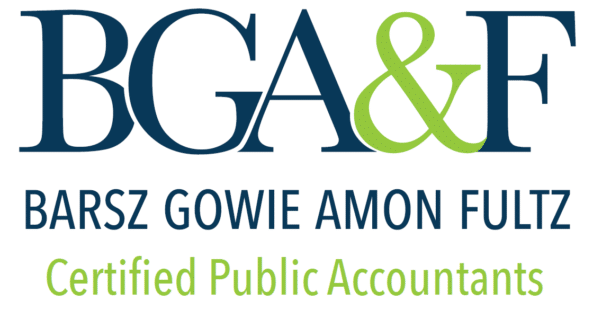Tax Benefits And Implications Of Owning A Summer Home


The allure of owning a summer or second home extends beyond the pleasure of having a personal retreat; it also offers potential financial benefits and investment opportunities. However, navigating the tax landscape of second home ownership requires careful planning and a thorough understanding of relevant tax laws and regulations. This article delves into the key tax considerations for second homeowners, providing insights on how to maximize benefits and minimize liabilities.
Rental Income and Tax Obligations
Rental Income Reporting
Renting out a second home can generate additional income, but it’s essential to report this rental income on your tax return. There are complexities to rental properties such as advance rent, security deposits used as rent, and other payments received for the use of the property. However, you can deduct expenses related to the rental activity, such as maintenance, utilities, insurance, and depreciation, which can significantly reduce taxable rental income.
14-Day Rule
The IRS allows homeowners to rent out their second home for up to 14 days per year without reporting the rental income, provided the home is rented for less than 15 days and used personally for more than 14 days. This rule offers a straightforward way to earn tax-free rental income, making it an attractive option for those who rent their property sporadically. However, this rule is not as straightforward as it sounds, and you should consult with your tax advisor to see if your tax situation meets this scenario.
Tax Deductions and Benefits
Mortgage Interest Deduction
One of the primary tax benefits of owning a second home is the ability to fully deduct mortgage interest amounts from both properties; the main home interest and the second home interest are deducted on Schedule A if the second home is not a rental. If the second home is a rental, then the rental property interest is deducted on Schedule E. If both homes are for personal use, then the outstanding amounts of the notes will be combined, reducing the amount available for deduction. Homeowners can deduct total mortgage interest on loans up to $750,000 of total debt outstanding for homes purchased after December 15, 2017. For homes purchased before this date, the limit is $1 million. This deduction applies if the loan is secured by the property and used for buying, building, or substantially improving the primary home.
Property Tax Deductions
Property taxes on primary and second homes are also deductible, but they are limited. The total deduction for state and local taxes, which includes property taxes, is capped at $10,000 per year ($5,000 if married filing separately) on Schedule A. If both properties are personal, then the taxes are added together, and the excess over the cap is lost. This means that in states with high property taxes, the deduction may be less. Once the second property is claimed as a for-profit property, the entire interest amount and property tax amount are deductible on Schedule E, making it most impactful in reducing taxable income.
Home Equity Loan Interest
Interest on home equity loans is deductible if the loan proceeds are used to buy, build, or substantially improve the home securing the loan. This rule applies to both primary and second homes within the overall mortgage interest deduction limits. Again, if the secondary property is for profit, these requirements for loan funds are diminished.
Depreciation Deductions
Depreciation is a non-cash deduction that spreads the cost of the property (excluding land) over its useful life, typically 27.5 years for residential rental property. This deduction helps offset rental income and reduce overall taxable income, but it also requires recapture upon the sale of the property, potentially leading to higher capital gains tax.
Capital Gains and Selling a Second Home
Capital Gains Tax
The tax treatment of capital gains from selling a second home differs from that of a primary residence. Unlike a primary residence, where homeowners can exclude up to $250,000 ($500,000 for married couples) of capital gains, second homes do not qualify for this exclusion. Therefore, gains from selling a second home are subject to capital gains tax, which can be as high as 20%, depending on your income level.
1031 Exchanges
A 1031 exchange, also known as a like-kind exchange, allows real estate investors to defer capital gains taxes when selling a property, provided the proceeds are reinvested in a similar property. A 1031 exchange can only be done if your second home is a rental property. It cannot be done if your second home is only used for personal use. This deferral can be a powerful tool for managing the tax impact of selling a second home, enabling investors to upgrade or diversify their portfolio without immediate tax consequences.
Special Tax Considerations For Second Homeowners
State and Local Taxes
State-specific tax laws can significantly impact the overall tax situation for second homeowners. Property taxes, rental income, and deductions may vary widely depending on the state and local regulations. Understanding these regulations is crucial for accurate tax planning and compliance.
Short-Term Rentals and Local Regulations
Local regulations on short-term rentals, such as those imposed by cities and homeowners associations, can include additional taxes and fees. These regulations can affect the profitability and tax reporting of rental activities, making it essential for homeowners to stay informed about local requirements and ensure compliance.
The Investment Value of the Second Home
Housing Prices have risen significantly in recent years. According to the Federal Housing Finance Agency, the market has been up 7% since 2012. Between 2021 and 2022, property values have risen 18.8%. This would be the case if the home were kept for personal or business use; however, the percentage of income is much greater by way of rents collected, not to mention offering a getaway when you need a break.
There are various tax considerations for second homeowners. By understanding and strategically managing these aspects, homeowners can maximize their tax savings and ensure compliance with tax laws. Consulting with a tax professional can provide tailored advice and optimize your tax strategy, ensuring you maximize your investment.
Please don’t hesitate to contact a member of the Barsz Gowie Amon & Fultz team for further guidance.
Learn more about how the firm helps clients achieve financial freedom at Barsz Gowie Amon & Fultz.
Connect With Your Community
Subscribe to stay informed!
"*" indicates required fields
















![95000-1023_ACJ_BannerAd[1]](https://vista.today/wp-content/uploads/2023/03/95000-1023_ACJ_BannerAd1.jpg)



































